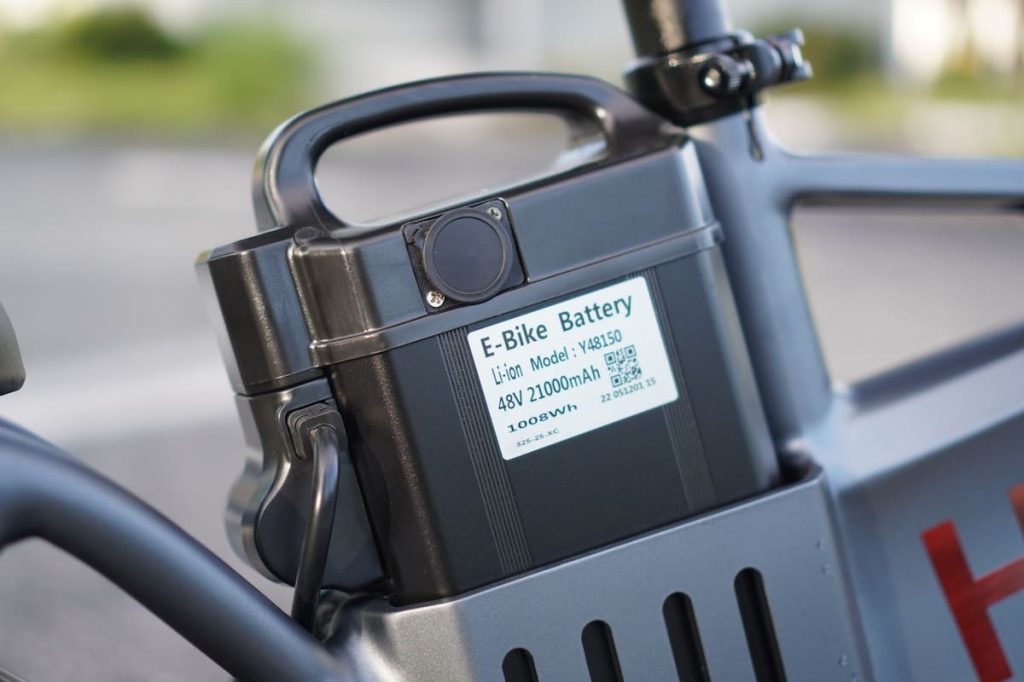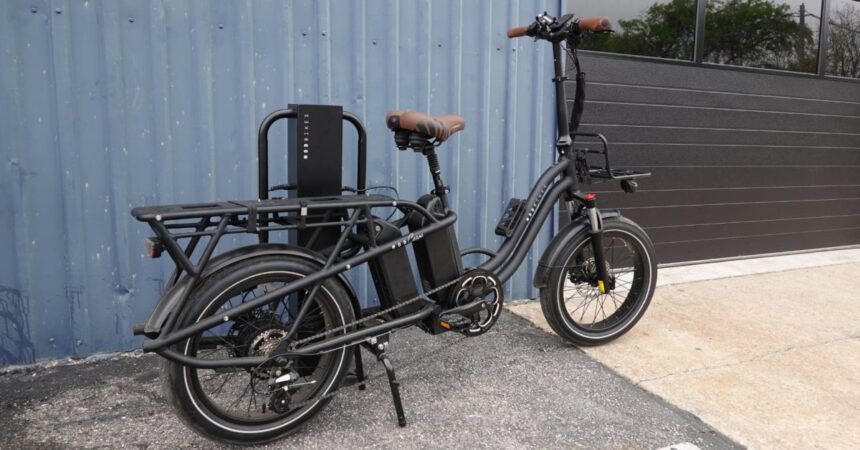As electric bicycles gain popularity, a common concern emerges among prospective buyers and curious onlookers: Exactly what’s the total cost of charging an e-bike? While the idea of eco-friendly transportation may be enticing, does it necessarily translate into a surge in your electricity bill?
Electric bicycles are often a cost-effective option.
Let’s dissect the reality surrounding the cost of charging e-bikes, revealing why they are poised to become a highly affordable transportation option in today’s market.
Many people assume that owning an e-bike is expensive due to two key factors: firstly, they underestimate the remarkable energy efficiency of e-bikes, and secondly, they fail to grasp the incredibly low cost of electricity in the United States.
Most entry-level e-bikes are equipped with motors rated at 750 watts or below, effectively operating within the realm of up to one horsepower. Despite the European Union’s regulation capping e-bike power output at just 250 watts, approximately one-third of a standard horsepower.
As the proliferation of e-bikes becomes increasingly evident, it’s easy to understand why they’re able to zoom past with such ease: simply put, you don’t need to expend much energy to propel a 50-pound vehicle alone. Typically, a moderate cycling enthusiast is able to generate around 200-250 watts of leg power. When you don’t need much power, you don’t require a significant amount of electrical energy.
Electricity at the consumer level is remarkably affordable. As the monthly electricity bill takes its toll, it’s often due to power-hungry appliances like air conditioning systems that strain our wallets. It’s likely that a month’s worth of charging an e-bike would consume significantly less energy than the daily operation of a household air conditioning unit alone. Let’s see why, beneath.
What’s the real cost of fueling up your e-bike? Well, let’s take a closer look at the numbers.
To begin with, you’ll need to consider the initial investment in the bike itself. The cost of an electric bicycle can range from around $300 to over $2,000, depending on the brand, model, and features.
Once you’ve got your new ride, the next expense is charging it up. The good news is that most e-bikes come with a rechargeable battery that can be plugged into a standard wall outlet or even charged via solar power (for those off-the-grid enthusiasts out there).
The cost of electricity to charge your e-bike varies depending on where you live and how much energy you use. In the United States, for example, the average cost of electricity is around 13 cents per kilowatt-hour.
So, let’s do some quick math. Assuming an e-bike with a 400Wh battery (a pretty common size), it would take approximately 20-30 minutes to fully charge your bike using a standard household outlet. That works out to around $1.60-$2.40 in electricity costs alone!
Now, let’s factor in the cost of maintenance and potential repairs down the line. While e-bikes are generally low-maintenance, you might need to replace tires, brake pads, or adjust the gears over time.
Finally, consider the environmental benefits of choosing an electric bicycle over a gas-powered alternative. By switching to an e-bike, you’ll be reducing your carbon footprint and contributing to a more sustainable future for our planet.
So, what’s the real cost of fueling up your e-bike? Well, it might not be as cheap as riding a traditional bike, but with an initial investment and ongoing expenses that are still relatively low compared to owning a car.
The primary factor influencing the cost of an electric bicycle is the capacity of its battery and the prevailing price of electricity in the region. E-bike batteries typically offer a range of capacities, spanning from 250 watt-hours (Wh) to 750 Wh. To put this into perspective, consider a standard 500Wh battery, commonly found in many mid-range e-bikes. For those familiar with the subject, this battery is essentially similar to a standard 48V 10Ah unit commonly found in many e-bikes.
:
A 500 Wh battery utilizes 0.5 kilowatt-hours (kWh) of electrical energy, equivalent to 1,000 watt-hours, to completely power its intended applications. This doesn’t account for inefficiencies inherent to the charger, but we’ll address that subsequently.
:
In the United States, electricity prices vary significantly depending on location, but the average cost is roughly $0.16 per kilowatt-hour (kWh). If you reside in Nebraska or California, your insurance premiums will likely be significantly lower or higher, respectively, due to varying state rates and factors. The concept of a “tough row to hoe” is open to interpretation and calculation methods vary among individuals.
:
0.5 kWh × $0.16 per kWh = $0.08
It typically costs around eight cents per watt-hour to fully charge a 500Wh e-bike battery on average.
A diverse range of approximately 30 miles is expected to yield a mileage rate of 0.2 cents per mile, equivalent to one cent per every 5 miles driven. If you live just a few miles from your workplace, your daily commute would literally be worth nothing, effectively costing a single penny.
Will your monthly or weekly “gas prices” for an e-bike ultimately depend on how much you use it and how far you can travel per dollar? If you commute a mere 10-20 miles each weekend, and your e-bike yields approximately 30 miles per charge, you’ll likely spend around 16 cents monthly on electricity.
In the unlikely scenario where you commute 10 miles each way, five times a week, using the same bike, your monthly electricity cost would likely approximate $60.
While many people may struggle to afford more than a dollar per month in electricity costs for charging their bike, assuming daily long-distance drives are the norm. At virtually no cost, the price of electrical energy associated with charging an electric bike is remarkably low, rendering it essentially “free” in practice.
:
To achieve optimal results, one must consider and address potential inefficiencies. While a typical wall charger might only achieve around 90% efficiency when charging a 500Wh battery from zero to full capacity, this translates to roughly 45W wasted as heat during the conversion process.
So we may assume a roughly 10% inefficiency rate with reasonable accuracy. Despite being 10% higher, a tiny amount remains infinitesimally small.

Considering the costs associated with e-bikes and alternative modes of transportation?
To accurately assess the value-for-money of electric bicycles, consider comparing the cost of recharging an e-bike with that of fuelling a traditional gas-powered vehicle or utilising public transport.
A relatively environmentally friendly e-bike tends to cost around 0.2 cents per mile, while an ineffectively designed e-bike may incur expenses of approximately 0.5 cents per mile.
:
As of late 2022, the average cost of regular gasoline in the United States was approximately $3.42 per gallon, according to data from the U.S. Energy Information Administration. At present, gasoline might cost around $3.50 per gallon. Even an environmentally friendly car that achieves 30 miles per gallon would likely cost around 12 cents per mile to operate, excluding maintenance and other expenses. Isn’t that roughly 40 times the cost of recharging an electric bicycle?
Typically, electricity in the United States costs around $0.16 per kilowatt-hour (kWh). To fill a standard 60-kilowatt battery, which is equivalent to approximately 96 megawatt-hours, would cost roughly $9.60. Assuming an estimated 250 miles per charge for this electric vehicle, the per-mile electricity cost calculates to approximately 4 cents. Compared to charging an e-bike, that’s roughly 13 times the cost?
:
While a single ride on public transportation may cost between $2 and $3 in many urban areas, this is significantly more expensive than purchasing an electric bike.
Numbers can vary significantly from city to city, with per-mile costs differing dramatically depending on individual circumstances: some people may take a bus for a short distance, while others cover extensive distances via train. Although a rough estimate, it’s likely to be at least one to two orders of magnitude higher than the cost per mile for an electric bicycle.

Further financial savings
Beyond the cost of electrical energy, e-bike owners can also reap savings on various utility bills.
- E-bikes boast a lower number of shifting components compared to traditional vehicles, often necessitating significantly less maintenance. Given the reduced speed and lighter vehicle weights, oil modifications are unnecessary, while brake pads and tires tend to last longer. Last year, I purchased an e-bike for my spouse, which they have been using daily to commute to work since then. Before the past 12 months, our primary maintenance cost was purchasing a replacement $50 front wheel, which became necessary after she suffered an unfortunate accident and damaged her original one. Despite the mileage, she still runs on her original tires and brake pads.
- While many cities charge exorbitant fees for parking vehicles, the reality is that parking an e-bike is often a free and convenient option. In just a few short months, the cost of parking fees in a sprawling metropolis can cover the full expense of purchasing a state-of-the-art electric bicycle.
- While many e-bike riders in the United States opt to forgo insurance coverage for their electric bicycles. For e-bike owners who choose to insure their vehicles, the premium is typically significantly lower than that of traditional automotive insurance.

Environmental influence
Alongside offering cost-effectiveness, e-bikes also present a sustainable and environmentally friendly mode of transportation. Compared to fuelling a car with gasoline, charging an e-bike significantly reduces its carbon footprint. As renewable energy sources continue to generate more electricity, the environmental benefits of e-bikes are likely to become even more pronounced.
I designed and built a sustainable charging station for my e-bikes and various e-vehicles, incorporating a combination of photovoltaic panels and portable power stations that harness the sun’s energy to charge all my rides entirely on solar power. While it may not be the most budget-friendly option, its off-grid capability makes it a convenient choice. I meticulously upkeep my electric tractor on-site, a prudent decision given the considerable distance between this shed and any available electrical outlets, necessitating self-sufficient power solutions.
Charging an electric bicycle proves to be an exceptionally cost-effective endeavor, typically requiring just a handful of cents to fully recharge. Compared to vehicles and public transportation, e-bikes stand out as an exceptionally cost-effective and environmentally friendly option for travel. Regardless of whether you’re commuting, running errands, or simply enjoying a ride, the affordable cost of owning an e-bike makes it an attractive option for anyone looking to save money and reduce their ecological footprint.
When considering alternative modes of transportation, factor in the true cost of owning an electric bicycle – you might just find it’s the perfect solution for your needs.

As a professional editor, I would improve this text in the following way:
Please take note of the following items, as they are relevant here.











